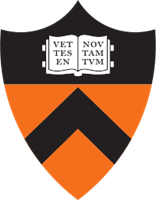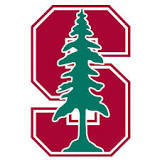What do they do?
Teach courses pertaining to mathematical concepts, statistics, and actuarial science and to the application of original and standardized mathematical techniques in solving specific problems and situations. Includes both teachers primarily engaged in teaching and those who do a combination of teaching and research.
Also known as:
Adjunct Instructor, Adjunct Mathematics Instructor, Adjunct Professor, Assistant Professor, Associate Professor, College Professor, Developmental Mathematics Professor, Instructor, Lecturer, Math Professor, Math Teacher, Mathematical Sciences Professor, Mathematics Faculty Member, Mathematics Instructor (Math Instructor), Mathematics Lecturer, Mathematics Professor, Mathematics Teacher, Professor, Statistics Professor
-
0.6%
Change
Ranks #40 in job growth rate120Job Openings
Ranks #14 in net job growth
Looking for colleges that offer a specific major? Use the College Match Tool to find your best-matched schools and discover your estimated Net Price!
- Doctorate or Professional Degree (47%)
- Master's degree (31%)
- Bachelor's degree (15%)
- Associate's degree (2%)
- Some college, no degree (2%)
- High school diploma equivalent (2%)
- Less than high school diploma (1%)
Most Popular Majors that prepare Mathematical Science Teachers, Postsecondary
-
#1
-
Degrees Granted
1,263
-
Female Students
328
-
Male Students
935
-
Median Starting Salary
$54,000
-
-
#2
-
Degrees Granted
492
-
Female Students
175
-
Male Students
317
-
Median Starting Salary
$57,400
-
-
#3
-
Degrees Granted
281
-
Female Students
78
-
Male Students
203
-
Median Starting Salary
$56,100
-
-
#4
-
Degrees Granted
269
-
Female Students
134
-
Male Students
135
-
Median Starting Salary
$42,090
-
-
#5
-
Degrees Granted
41
-
Female Students
31
-
Male Students
10
-
Median Starting Salary
$35,300
-
People in this career often have these skills:
- Mathematics - Using mathematics to solve problems.
- Speaking - Talking to others to convey information effectively.
- Reading Comprehension - Understanding written sentences and paragraphs in work-related documents.
- Active Listening - Giving full attention to what other people are saying, taking time to understand the points being made, asking questions as appropriate, and not interrupting at inappropriate times.
- Instructing - Teaching others how to do something.
- Writing - Communicating effectively in writing as appropriate for the needs of the audience.
- Critical Thinking - Using logic and reasoning to identify the strengths and weaknesses of alternative solutions, conclusions, or approaches to problems.
- Learning Strategies - Selecting and using training/instructional methods and procedures appropriate for the situation when learning or teaching new things.
- Monitoring - Monitoring/Assessing performance of yourself, other individuals, or organizations to make improvements or take corrective action.
- Active Learning - Understanding the implications of new information for both current and future problem-solving and decision-making.
- Complex Problem Solving - Identifying complex problems and reviewing related information to develop and evaluate options and implement solutions.
People in this career often know a lot about:
- Mathematics - Knowledge of arithmetic, algebra, geometry, calculus, statistics, and their applications.
- Education and Training - Knowledge of principles and methods for curriculum and training design, teaching and instruction for individuals and groups, and the measurement of training effects.
- English Language - Knowledge of the structure and content of the English language including the meaning and spelling of words, rules of composition, and grammar.
- Computers and Electronics - Knowledge of circuit boards, processors, chips, electronic equipment, and computer hardware and software, including applications and programming.
People in this career often have talent in:
- Mathematical Reasoning - The ability to choose the right mathematical methods or formulas to solve a problem.
- Oral Expression - The ability to communicate information and ideas in speaking so others will understand.
- Number Facility - The ability to add, subtract, multiply, or divide quickly and correctly.
- Oral Comprehension - The ability to listen to and understand information and ideas presented through spoken words and sentences.
- Written Comprehension - The ability to read and understand information and ideas presented in writing.
- Deductive Reasoning - The ability to apply general rules to specific problems to produce answers that make sense.
- Written Expression - The ability to communicate information and ideas in writing so others will understand.
- Inductive Reasoning - The ability to combine pieces of information to form general rules or conclusions (includes finding a relationship among seemingly unrelated events).
- Speech Clarity - The ability to speak clearly so others can understand you.
- Near Vision - The ability to see details at close range (within a few feet of the observer).
- Speech Recognition - The ability to identify and understand the speech of another person.
- Information Ordering - The ability to arrange things or actions in a certain order or pattern according to a specific rule or set of rules (e.g., patterns of numbers, letters, words, pictures, mathematical operations).
People in this career often do these activities:
- Administer tests to assess educational needs or progress.
- Prepare tests.
- Evaluate student work.
- Teach physical science or mathematics courses at the college level.
- Maintain student records.
- Develop instructional materials.
- Evaluate effectiveness of educational programs.
- Develop instructional objectives.
- Advise students on academic or career matters.
- Guide class discussions.
- Research topics in area of expertise.
- Write articles, books or other original materials in area of expertise.
- Stay informed about current developments in field of specialization.
- Attend training sessions or professional meetings to develop or maintain professional knowledge.
- Select educational materials or equipment.
- Order instructional or library materials or equipment.
- Schedule instructional activities.
- Prepare staff schedules or work assignments.
- Prepare activity or work schedules.
- Direct department activities.
- Monitor performance of organizational members or partners.
- Evaluate performance of educational staff.
- Supervise student research or internship work.
- Serve on institutional or departmental committees.
- Promote educational institutions or programs.
- Perform student enrollment or registration activities.
- Write grant proposals.
- Plan community programs or activities for the general public.
- Advise educators on curricula, instructional methods, or policies.
- Compile specialized bibliographies or lists of materials.
This page includes data from:

 Occupation statistics: USDOL U.S. Bureau of Labor Statistics Occupational Employment Statistics
Occupation statistics: USDOL U.S. Bureau of Labor Statistics Occupational Employment Statistics








